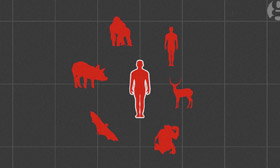
If we were to ask the great detective himself what makes him great, he would no doubt cite his superior powers of observation, deduction and ratiocination. Sherlock Holmes’s signature display of virtuosity, after all, is to read volumes about an acquaintance’s history and circumstances from tiny details of his or her appearance: a frayed cuff, a soiled hat band, a particular type of tobacco ash (one of 140 catalogued in his famous monograph) clinging to a lapel.
But go back to Arthur Conan Doyle’s stories and you may be surprised by how often the solution to one of Holmes’s cases hinges on trickery: disguises, ambushes and traps. Granted, such gambits – and the deployment of trusty Watson’s service revolver – make for more exciting storytelling than a man peering through a magnifying glass, but, still, it is striking how few of the tales are actually meticulous procedurals instead of ripping yarns. Conan Doyle, who dashed off stories about Holmes to fund his more serious-minded historical novels, was notoriously sloppy with the very minutiae that his immortal creation specialised in decoding.
Besides, do we really enjoy Sherlock Holmes mysteries for the mysteries themselves? This is a question that comes up a lot when reading Anthony Horowitz’s sequels-cum-pastiches. He is the only novelist authorised to write Holmes stories by Conan Doyle’s estate: the first he produced, The House of Silk, was very popular and a solid piece of work – well constructed, skilfully executed and persuasively tinged with that alluring sooty flavour of 1890s London. His second, Moriarty, is much the same, but bolder in its ambitions.
Moriarty is a Holmes novel without either Holmes or Watson. The two main characters – our narrator, an American private detective named Frederick Chase, and Athelney Jones, a detective inspector from Scotland Yard – meet over a corpse found in the brook fed by the Reichenbach Falls in Switzerland, shortly after the famous and allegedly fatal confrontation between Holmes and his arch-enemy. The corpse bears the name of the novel’s title character, but the two men have another fish to fry: Clarence Devereux, an American mastermind seeking to take Professor Moriarty’s place at the centre of London’s criminal web.
Jones appears as a minor character, the stock bumbling policeman, in the Conan Doyle story “The Adventure of the Six Napoleons”. As Horowitz imagines it, the humiliation of being shown up by Holmes has spurred Jones on to master the art of detection, and Chase, who has tracked Devereux from the States, is more than willing to serve as his Watson. “I am dogged in my approach,” he modestly tells the detective inspector. “And it is this, more than anything, which has led me frequently to success.” Jones and Chase fall into the personas Conan Doyle created like asteroids submitting to the gravitational pull of the sun. “London needs a new consulting detective,” Chase tells Jones, as they fantasise about setting up an establishment near Baker Street and “finding a Mrs Hudson to look after us”.
Many Conan Doyle fans and acolytes have written fictional speculations about the three-year period after the Reichenbach Falls incident, a time referred to in as the Great Hiatus. So what does Horowitz bring to the table? As with The House of Silk, this novel is a gorier and more sombre vision of late Victorian London, freer than Conan Doyle ever was to acknowledge the sordid realities of human nature and urban life. When Chase checks into a cheap hotel on the Embankment and rubs the grime from the window to gaze out at a coal ship sailing down the river, it is as if he has brought a noirish sensibility with him from the New World. This sensibility is accompanied by a villain who hisses things like, “You will die for this … it will be slow” – and means it.
Moriarty is a sound mystery novel, with traps, disguises and a good if not exactly unprecedented twist, but whether it scratches the Holmesian itch is another matter. It is a remarkably melancholy affair. There is none of the “air of irresponsible comedy, like that of some father’s rigmarole for his children” that the critic Edmund Wilson praised in the Holmes stories, or the sheer, campy brio that distinguishes Conan Doyle’s detective fiction from its latter-day descendants, that sensation of events taking place in an eternal realm of games. Isn’t this quality, more than anything else, what the great detective’s fans return for, over and over again? Jones and Chase like to quote Holmes and Watson, and they deliberately model themselves on the immortal duo, but they inhabit a fallen world. The pleasure to be found in Moriarty is real enough, but perhaps a little too real to be truly Holmesian. It has the detection, the deduction and the action, but I did miss the fun.
• Laura Miller’s The Magician’s Book: A Skeptic’s Adventures in Narnia is published by Little, Brown. To Moriarty for £15.99, go to bookshop.theguardian.com or call 0330 333 6846.















